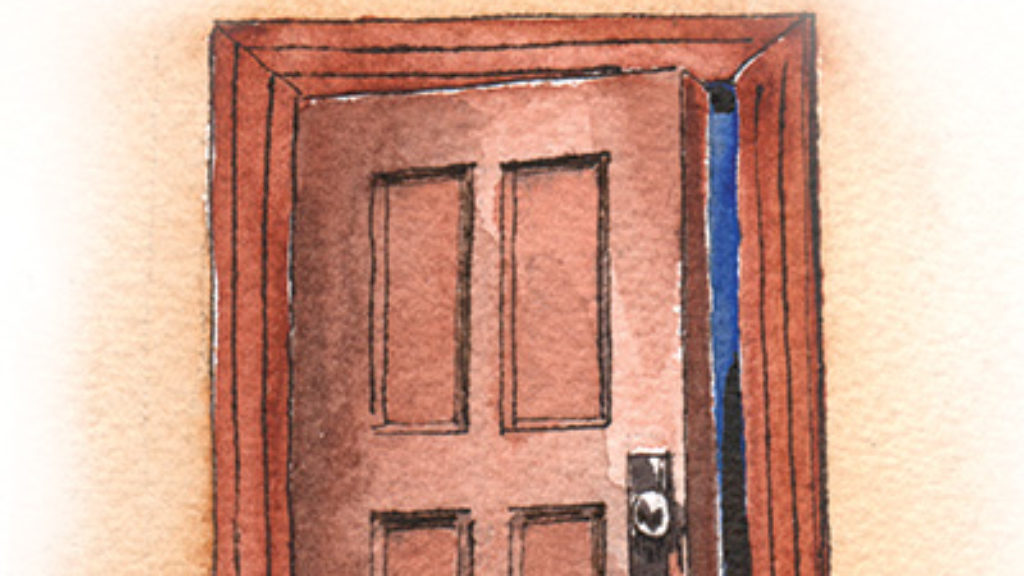Letters, Spring 2014
Spy vs. Spy
Laura Rosenzweig’s gob-smacking discovery of an anti-Nazi spy network financed by Hollywood moguls in the 1930s raises several interesting questions. (“Hollywood’s Anti-Nazi Spies,” Winter 2014) Among them: Was Leon Lewis really underwriting the whole operation on his own until Louis B. Mayer and his colleagues stepped in? How instrumental was Lewis’ information in the conviction of home-grown Nazis like William Dudley Pelley? And did the writers of Warner Brothers’ Confessions of a Nazi Spy (1939) really have some inkling of this?
Harold Cohn
Chicago, IL
Secular Myths
Don Seeman unpacks the confusing nomenclature of the recent Pew survey, rightly arguing that “religion is (still) the key.” (“Pew’s Jews: Religion Is (Still) the Key,” Winter 2014) However, embracing the Jewish religion in our secular age is easier said than done. I’m familiar with the formidable challenge, as I was one of Pew’s “Jews by religion.” To find my own way back to the Jewish tradition, I needed to overcome several secular ideas—secular myths actually—such as that Judaism entails some archaic theology and that revealed truths are unreasonable. Overcoming these secular myths is what it may take for many unaffiliated Jews to find their way back to Judaism.
Curt Biren
Santa Monica, CA
Where Shall Wisdom Be Found?
What a great historical essay. (“Wisdom and Wars,” Winter 2014) I have been reading Mr. Halkin’s work for many years and each time come away enlightened and uplifted—not only by his evident scholarship but also, very centrally, by the sparkling wisdom and the uncommonly elegant literary style of his writing. This piece probably started as a book review but grew so much broader and deeper than one. Delightful.
Sirgei Nirenburg
via jewishreviewofbooks.com
Gordis’ Requiem for Conservative Judaism
Having served as an Orthodox rabbi in Atlanta for 40 years, I witnessed Conservative Judaism both at its heyday and its descent. Although I was an ideological opponent of the Conservatives—albeit with friendly personal relationships with the Conservative community and its rabbis—I felt myself sympathizing with Daniel Gordis’ brutally honest and poignant requiem at the impending demise of the movement. (“Conservative Judaism: A Requiem,” Winter 2014) It is a genuine cry from the heart, coming from a very sincere belief in what he, the scion of one of the landmark families of the movement, once hoped was the potential of Conservatism. He decries the triviality within the movement that set out to conserve authentic Judaism and on which he had placed so much hope for the revival of Judaism in America.
Gordis registers a litany of errors, failures, and miscalculations on the part of Conservative Judaism: They did not teach the “rigors of Jewish living,” did not “speak with spiritual seriousness” or deal with “the deep existential human questions that religion is meant to address,” ignored the fact that “meaningful life is about demands and duties and the call of God, otherwise we are trivial,” failed to “make demands that root people in the cosmos,” and “ignored content and Jewish substance.” He adds that all these were offered by the Orthodox “and the results are clear.” But though he admires Orthodox rigor and its demands, he is not yet ready to toss his yarmulke into the Orthodox ring, apparently because he prefers a Judaism “committed to the rigors of Jewish living without a literal (read Orthodox) notion of Revelation at its core.” Thus, Orthodoxy is “intellectually untenable for many.” At the same time, he would never consider “a liberal Judaism incapable of transmitting content and substance.” He yearns for a religious address for America Jewry, a movement that realizes that “human beings do not run from demands.”
Beyond the question of labels, it is unclear why the concept of Sinaitic revelation (Gordis does not use this term explicitly, but clearly implies it) is intellectually untenable, while “demands that will root people in the cosmos” are intellectually tenable. Can one be rooted in the cosmos without demands that are similarly rooted in the cosmos? Once, observing the Sabbath and the dietary laws and mitzvot brought meaning and substance to life. But today, the argument would go, I get my meaning and substance from playing golf on Saturday morning, eating bagels and lox on Sunday morning, and playing poker on Wednesday nights. Who is anyone today to tell me differently? Rabbi Gordis would surely agree that such activities are trivial only when held up alongside the marker of what genuine Torah really is. And genuine Torah, I suspect that he would further agree, is not simply a collection of tribal rules and practices concocted by my ancient bubbes and zeiddes, but contains echoes and reverberations of the Divine within it.
But Gordis is enmeshed in a snare of his own making. For if he is suggesting that the intellect is our final arbiter, and that before I commit my life to something, it must be intellectually tenable, then how is a divine Torah intellectually tenable? For that matter, how is a belief in a God Who listens and Who sees and to Whom one prays (what Gordis himself calls “the call of God”) intellectually tenable? Intellectual tenability is at bottom an untenable construct on which to build a religious way of life.
Gordis’ dilemma is palpable. In addition to the anguish he experiences at the implosion (his word) of his Conservative movement, he is caught in an even more painful vise. He longs for the rigors and transcendence of Orthodoxy, but without the transcendent authority that gives Orthodoxy its legitimacy and its power. I would respectfully suggest a way out for Rabbi Gordis. Let him put aside theology for now; stop taking the pulse of intellectuality and toss aside the thermometer of tenability. Let him eschew all labels entirely and instead offer a lifestyle under any nomenclature he chooses, a life that stresses mitzvot, insists on solid Torah study, makes rigorous demands, is relentless in its pursuit of Godliness and spirituality in daily life, and that spurns trivialities. Let not notions of revelation or Torah min ha-shamayim, literal or not, stand in the way of living a complete Jewish life (which I am sure he is in any case already doing).
In a remarkable and mysterious rabbinic insight, Jerusalem Talmud (Hagiga 1:7) posits that at the sin of the Golden Calf, God Himself said, Halevai oti azavu ve-torati shamaru . . . “Would that even though they abandon Me, they would observe My Torah—for the divine light within the Torah will bring them back to the Good.” The key to Judaism today is not so much what we believe as what we do, not our theology but our daily practice.
As Rabbi Gordis writes, millions of American Jews will respond to a message that is serious and speaks to their neshamot, their souls. Later on, many miles down the road, we can discuss theology.
Emanuel Feldman
Bayit Vegan, Jerusalem
(Editor’s Note: Rabbi Feldman is the former editor of Tradition: A Journal of Orthodox Jewish Thought.)
Daniel Gordis argues that the Conservative leadership gave in to the masses who drove to synagogue etc. rather than holding the official line as did the Orthodox back when many of their congregants did the same. If that is a factor in the implosion of the Conservative movement, it is a minor one. The movement calls itself “Positive Historical” (going back to Zechariah Frankel). Although, though this ideology may lead to intellectual integrity it does not lead to piety. It may work for a select few who are willing to live with religious tension but it will never work on a massive scale. The post-war sociological realities that sustained the Conservative movement through the 1970s are finished. Now it is left with an ideology, of which most are ignorant, and which would not instill piety even if everyone knew and understood it. Conservative ideas will live on and nurture a small number of people, but, as Gordis argues, the movement as such is on life support and will soon cease to exist.
Rabbi William Berman
Dobbs Ferry, New York
Daniel Gordis wrote bravely and with great pathos about the failings of Conservative Judaism in America. Conservative Judaism sold American Jews a bill of goods—it supplied an artifice of Jewish life to make its congregants feel like good Jews but did not demand any learning or observance from them in return. Jews identified as “Conservative” not by behavior or belief, but because they paid dues at a Conservative shul.
One painful, emblematic example is the “big lie” that most Jews, raised in Conservative synagogues, seem to believe, namely that “I read Hebrew”—by which they mean they can phonetically sound out words written in Hebrew with vowels. Would they say that they “read Latin” just because they can sound out the words? This is a deeply emotional self-deception with which the Jewish religious establishment conspired. One cannot fault children for justifiably understanding the unspoken message—that these Hebrew texts aren’t really important; that religious observance is more of a public performance or charade.
Seth Cohen
Mamaroneck, NY
There is an aspect of the history of the Conservative movement that Daniel Gordis did not mention in his cogent article. Rabbi Mordecai M. Kaplan proposed a reason for Jewish observance and continuity rooted in Jewish peoplehood. Kaplan was an important voice in Conservative Judaism but the halakhists could not deal with him. I remember Rabbi Gerson Cohen’s triumphal statement to the student body of The Jewish Theological Seminary that “the Reconstructionist element has been exiled from Conservative Judaism.” As a rabbinical student, I knew then that Conservative Judaism was doomed. Just telling people that they should be halakhic Jews without offering a coherent historical or sociological reason for it is worthless. Most people cannot accept the divine imperative of Judaism but still want to be serious about their Judaism. Daniel Gordis should be commended for his honesty.
Alan Londy
via jewishreviewofbooks.com
The Conservative movement for which Daniel Gordis provides an insightful requiem is probably best understood as a typical example of the American ethnic congregation. The old Jewish versions of this phenomenon were called Anshe Lublin, or the Polishe shul.
The Conservative movement rose with the generation that moved out of densely ethnic neighborhoods to the suburbs. The synagogues they built were about faith, but they were also about ethnicity: familiar faces, familiar food, and jokes that only an insider could understand. Like Jews, second- and third-generation Catholic and Protestant immigrants moved to the suburbs from farming towns and city neighborhoods where congregations had formed around specific geographic/ethnic origins to somewhat bigger-tent congregations in the new suburbs—but they carried things only so far. Second- and third-generation Americans who had grown up in a church where almost everyone was a Norwegian Lutheran from the same valley in Telemark moved to post-war, suburban Lutheran congregations where people’s ancestors had come from all over Scandinavia. They would have understood the joke told in post-war Conservative shuls about the Galitzianer parents who were horrified to learn that their daughter was dating a Hungarian—including the fact that no one in such congregations was actually horrified by such a match.
Like Conservative shuls, Lutheran churches are shrinking, as are Presbyterian (Scots), Congregationalist (Yankee), Episcopalian (English), Armenian, Greek, and European ethnic Catholic parishes. Christianity is flourishing. So is Torah Judaism. What faded was not religion, but ethnicity.
Diana Muir Appelbaum
via jewishreviewofbooks.com
More than 40 years ago, when I lived in rural Canada, the road I took home crossed a river on what was called a “Bailey Bridge.” I was told that this was an English term for a temporary bridge that looked permanent, had all the appearances of something intended to last forever, and often functioned for decades, but was really a temporary link during the transition time it would take to build a genuine structure. Apparently they were ubiquitous in Europe where bridges had been destroyed during World War II. I think of the American Conservative movement as a special bridge built to accommodate the needs of the massive immigration of Russian Empire Jews from the Pale of Settlement to America.
Michael H. Traison
Herzliya, Israel and Warsaw, Poland
Daniel Gordis Responds:
In addition to the online responses of Rabbis Bickart, Dorff, Grossman, Hauptman, Kalmanofsky, Starr, Tucker and Professor Sarna, I was gratified (and challenged) by the many, many thoughtful letters and online comments in response to my “Conservative Judaism: A Requiem”—not to speak of the responses in other publications. I have tried to respond to the main points in these responses, restate my critique of Conservative Judaism, and spell out its implications (constructive as well as critical) in a second article, “Cognitive Dissonance,” posted on the Jewish Review of Books website. I thank Rabbi Feldman and the other letter writers published here for their thoughtful responses and refer them to that second essay.
Purim Geography
Are your editors all sage chachamim from Chelm, or are some of you from Pipek? I see that your editorial address is on Mayfield Road in Cleveland. Moe Dalitz hailed from Mayfield. May he rest in peace this Purim.
James Richard Lucas
Las Vegas, NV
The Editors Respond:
We are indeed aware that before he became “Mr. Las Vegas” Moe Dalitz ran the Cleveland Syndicate, which he later merged with the Mayfield Road Mob, working with Alfred “The Owl” Polizzi and others not far from where we now sit. To paraphrase Isaac Bashevis Singer, “from the elders of Mayfield there are no secrets.”
Suggested Reading

Ritchie’s Boys and the Men from Zion
Our appreciation for stories of Jewish bravery during World War II sometimes obscures the fact that as a group Jews were powerless, reduced to begging others for a chance to bear arms.

Zionisms, Old and New
Arthur Hertzberg's classic anthology The Zionist Idea has received a 21st century makeover. But is the new version really an improvement over the old one? And what does Yossi Klein Halevi have to say in 2018 that hasn't been said before?

Books vs. Children
"Apparently it is very troubling for children to see their parents working, at least doing the kind of work that does not make itself visibly obvious."

Walkers in the City
Herman Melville was unimpressed with Jerusalem in 1857, but what would he say if he were a saunterer on Mamilla or King George today?
Comments
You must log in to comment Log In